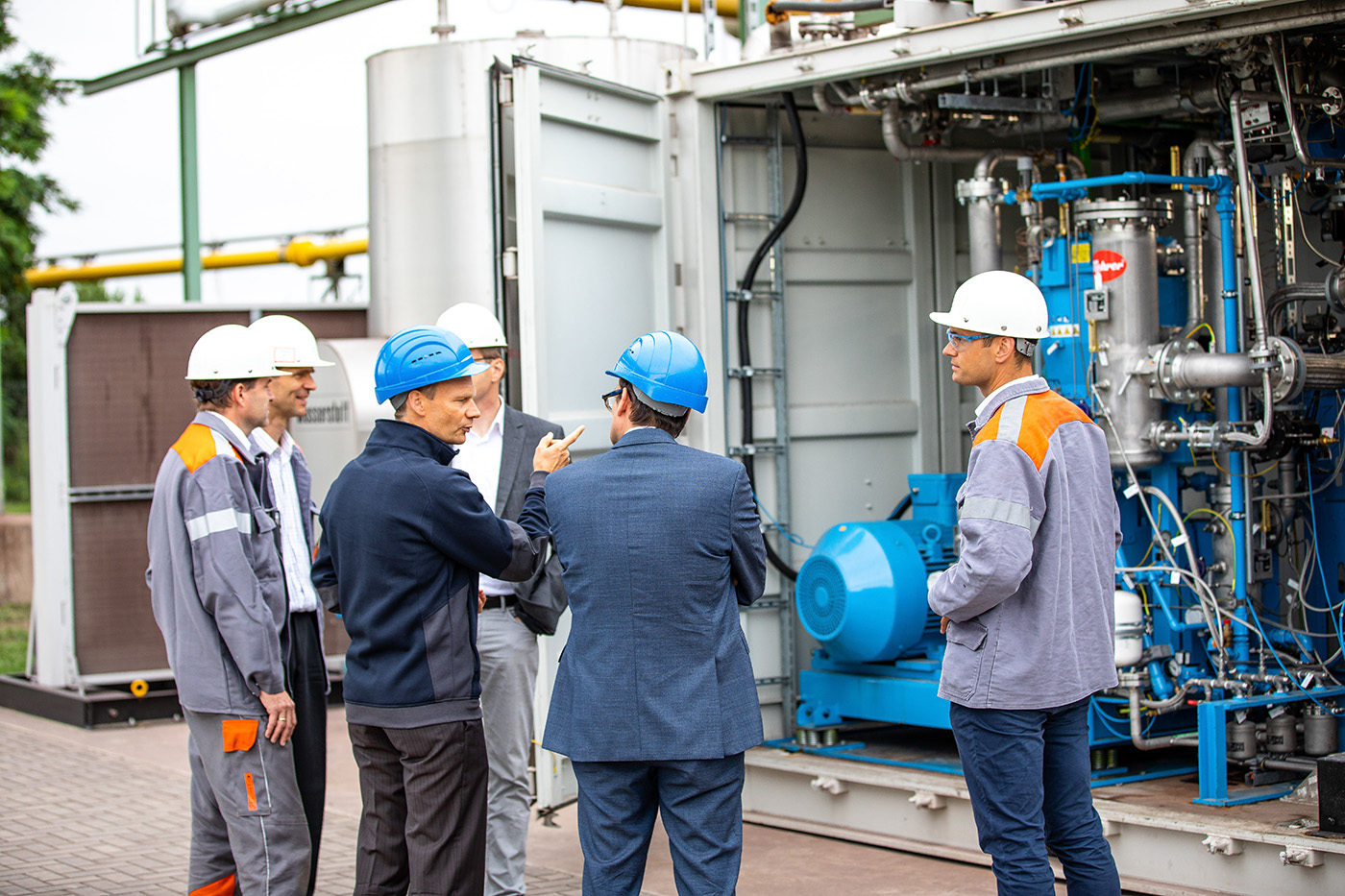To reduce CO2 emissions, Salzgitter AG is introducing innovative technologies for climate-friendly steel production. Now another technological breakthrough has been achieved within the GrInHy2.0 hydrogen project. Part of this initiative is the EU-funded hydrogen project GrInHy2.0, demonstrating the world’s largest high-temperature electrolyser to produce green hydrogen.
By using green hydrogen, the steel and technology group Salzgitter AG is a pioneer of sustainable steel production technologies. To drastically reduce their carbon footprint by 2033, the company has implemented the SALCOS – Salzgitter Low CO2 Steelmaking Program as essential aspect of their new Salzgitter AG 2030 strategy.
Part of this initiative is the EU-funded hydrogen project GrInHy2.0, demonstrating the world’s largest high-temperature electrolyzer to produce green hydrogen.
“For many months, we have been working together with our partners on this lighthouse project. Now we reached another important milestone,” says project leader Simon Kroop from the Salzgitter Mannesmann Forschung. “For the first time, the electrolyser produced 200 Nm3 of green hydrogen per hour. We are also able to prove an electrical efficiency of 84% el,LHV. This is a level of efficiency that no one else has achieved before. By comparison: other electrolysis technologies such as Alkaline or PEM only reach efficiencies of around 60 % el,LHV.”
The high temperature electrolyser was developed and manufactured by the German electrolysis company Sunfire. Based on the innovative SOEC (solid oxide electrolysis cell) technology, the electrolyser uses renewable electricity to split water into hydrogen and oxygen. Electrolysis per se is not a new process – but Sunfire’s SOEC technology is the most efficient on the market.
“Our electrolyser runs at operating temperatures of 850 °C and uses waste heat from Salzgitter’s steel production processes,” explains Konstantin Schwarze, Head of Large Systems Product Development at Sunfire. “That is reason why our high-temperature electrolyser requires much less electricity to produce hydrogen at a large scale than conventional technologies. As part of GrInHy2.0, we were finally able to demonstrate the high efficiency on a megawatt scale.”
“The limited resource of renewable electricity is being ideally used for generating hydrogen, which is another step towards green steel production. This is proven by the record efficiency which also supports our strategic vision Pioneering for Circular Solutions,” says Dr. Stefan Mecke, SALCOS Project Spokesman.
Sunfire CEO Nils Aldag is proud of industrial large-scale projects like these: “Our electrolyzers enable a green future for industrial companies like Salzgitter AG. We are very pleased to see our technologies successfully operating in industrial environments. Pioneers like Salzgitter are setting a great example. Many more of these are needed to achieve our European climate targets.”
Besides Salzgitter Flachstahl and Sunfire, also the Salzgitter Mannesmann Forschung, SMS Group company Paul Wurth, Tenova and the French research center CEA are part of the GrInHy2.0 consortium.

